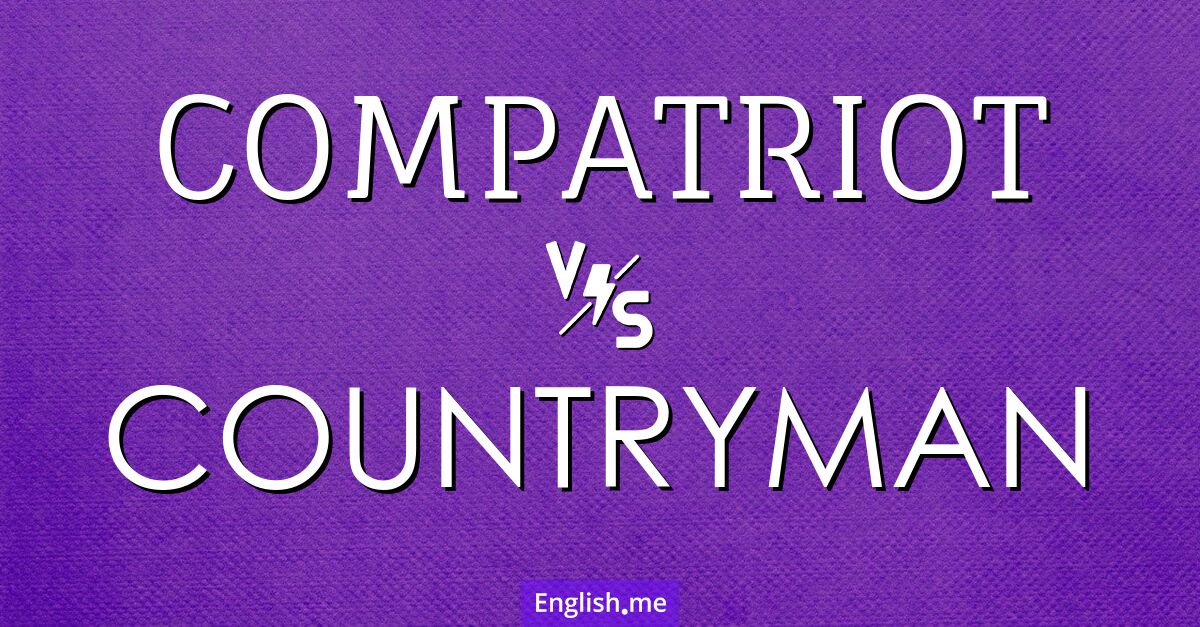Exploring the bond: "compatriot" vs. "countryman"
Reviewed and edited by  Lloyd Cooper 10/11/2024, 23:35
Lloyd Cooper 10/11/2024, 23:35
English.me team member

 What is similar?
What is similar?
Both words refer to a person from the same country as someone else.
 What is different?
What is different?
The term "compatriot" often has a formal or literary tone and can imply a sense of solidarity or support among people from the same country. "Countryman" is more colloquial and can also mean someone living in a rural area or being familiar with country life, although this usage is separate from the context of nationality.
 Which one is more common?
Which one is more common?

 Examples of usage
Examples of usage
Compatriot- She met a compatriot from her hometown at the conference.
- Compatriots often find solace in each other's company when abroad.
- He was a countryman, born and raised in the rural parts of the county.
- Meeting a fellow countryman in a foreign city was a pleasant surprise.

 English
English español
español française
française italiano
italiano deutsche
deutsche 日本語
日本語 polski
polski česky
česky svenska
svenska Türkçe
Türkçe Nederlands
Nederlands